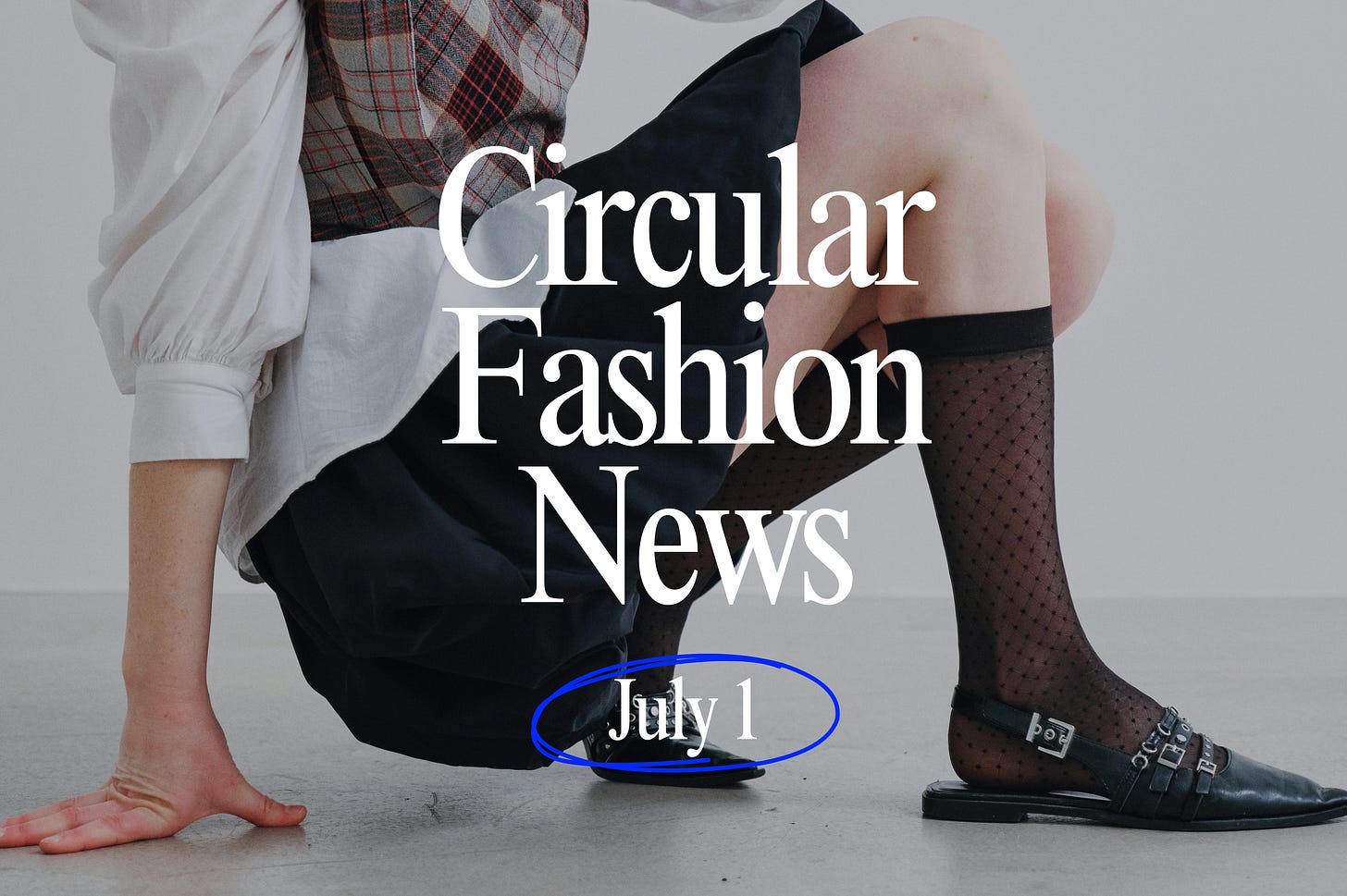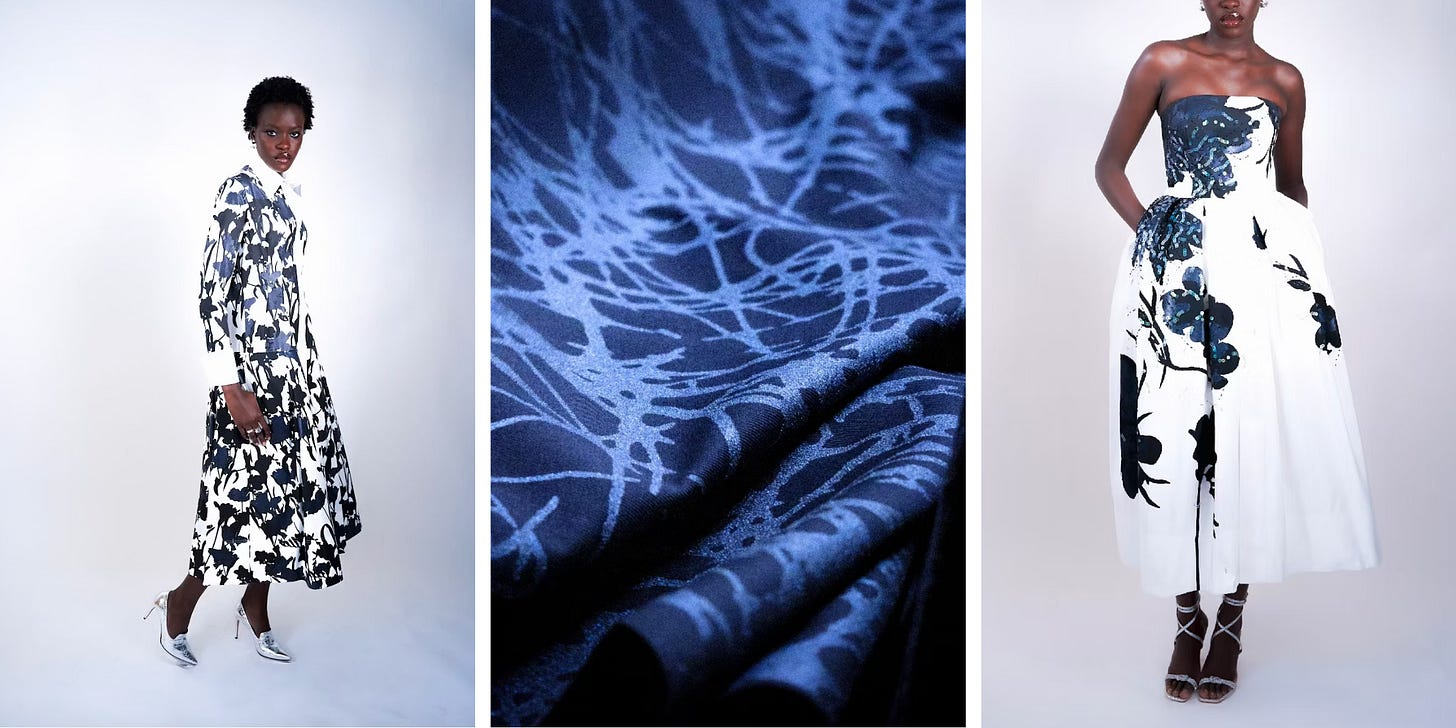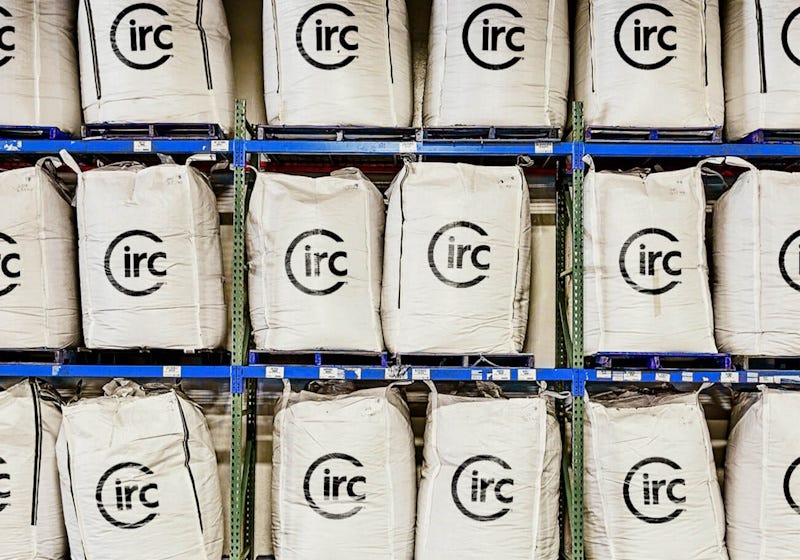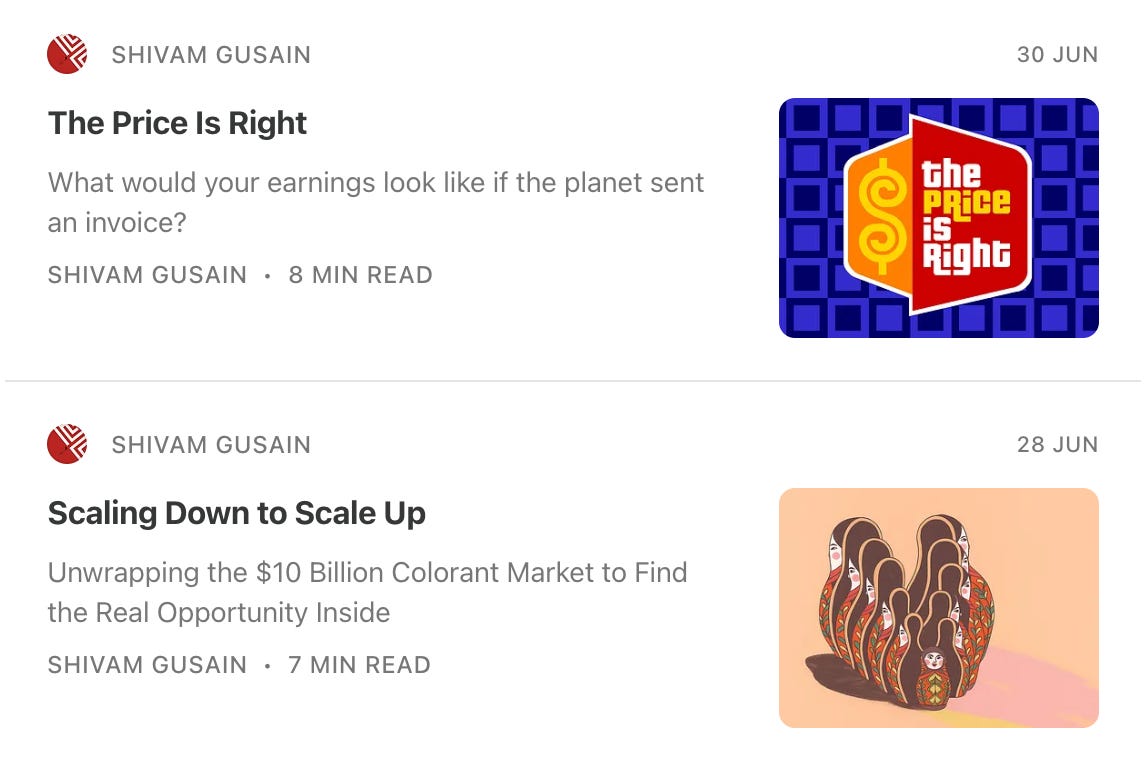Circular Fashion News / July 1: Fashion rental, Digital Product Passport's impact, T2T recycling partnerships
Last week T2T recycling solutions announced partnerships left and right, EU-funded Circula-TEX was launched, a report on DPP's impact came out, and a rental player The Volte expanded to the UK.
Welcome to reading a weekly recap of circular fashion news! Some of last week’s highlights in the circular fashion industry included:
Chile’s government aims to eradicate textile waste dumps in the Atacama desert
EU-funded Circula-TEX, aiming to tackle textile waste and produce unified guides for the fashion industry, was launched
Australian rental player The Volte expanded to the UK
Sojo opened service hubs in the UK and announced to be expanding to France
Sparxell launched a plant-based structural colour ink for commercial use
Colorifix raised $18 million to enable commercial scaling
Bain and eBay launched a report on Digital Product Passports impact on the lifetime value of fashion products
Textile-to-textile recycler Circulose partnered with the H&M Group
Textile-to-textile recycler Syre partnered with Gap, Target, and Houdini
An automated system for sorting post-consumer textiles is being piloted
Regulations: Chile aims to eradicate textile waste dumps in the Atacama desert
Chile’s government has taken a step towards addressing the textile waste problem in Chile’s landfills.
Last week, the country’s environment ministry announced that textiles had been added as a “priority” category to its extended producer responsibility law, making importers obliged to report the clothing they bring into the country. Further regulations are said to be added to the bill soon.
→ Read the full story
→ Read about the Atacama Desert’s textile waste crisis
Launch: EU-funded Circula-TEX aims to tackle textile waste and produce unified guides for the fashion industry
The EU-funded Circula-TEX project was launched last week to address inefficient textile waste management and fragmented regulations across Europe. The four-year project brings together 19 partners, including Global Fashion Agenda, Hugo Boss, and Texaid. Among the project’s key outputs will be:
A harmonised labelling system aligned with the upcoming Digital Product Passport and ESPR regulation
Eco-design guidelines to help create products that are easier to reuse and recycle
A unified Extended Producer Responsibility (EPR) framework for the textile sector
→ Explore the project
→ Read more
A French study: It’s not only fast fashion driving overconsumption, secondhand plays a part as well
A study by France’s environmental agency ADEME (Agency for Ecological Transition) highlights that while fast fashion and ultra-fast fashion are key drivers of overconsumption, secondhand fashion can contribute as well. While the report highlights that resale plays a significant part in extending product life, it also calls for clearer communication on the environmental benefits, and limits, of secondhand fashion.
Key findings:
45% of French consumers buy from traditional fast fashion retailers (e.g. H&M, Zara), while 24% purchase from ultra-fast fashion brands (e.g. Shein, Temu). Ultra-fast fashion shoppers have wardrobes about 52% larger than those of consumers who shop mainly traditional brands.
42% of French adults buy clothes secondhand, with Vinted dominating the market.
39% of secondhand buyers also shop ultra-fast fashion.
In 51% of secondhand sales, the money earned is spent on more clothing. Among heavy shoppers, this rises to 85%, showing how resale fuels further consumption.
→ Read the full study (in French)
→ Read an article about the study (in English)
Australian rental player The Volte launched in the UK
The Australian peer-to-peer fashion rental marketplace, The Volte, has launched in the UK market with more than 1,000 designer items from lenders. The Volte is backed by eBay Ventures, and has previously operated only in Australia.
Swiss bag brand Freitag launched a rental program
A Swiss bag brand, Freitag, has launched its rental program. Peter Hollenstein, project manager at Freitag Rent, commented that this is a way for Freitag to explore a circular business models.
The rental program has currently one bag model, the Voyager travel bag, for rent. Freitag expects that people typically only need a travel bag a few days per year, and therefore, offering customers the option to rent the bag instead of buying makes sense.
Rental solution provider Caastle has filed for bankruptcy
After a spring of turmoil, a US-based rental solution provider Caastle has filed for Chapter 7 bankruptcy and will set up liquidation. Caastle’s employees were furloughed earlier in the spring, and the CEO is accused of fraud.
Sojo expands to France and opens service hubs in the UK
A UK-based clothing repair provider, Sojo, is making moves: the company announced to be expanding to the French market, and has opened two service hubs in the UK market.
The French market will be the first international expansion for Sojo. A specific launch date for the expansion will be announced later.
In the UK, Sojo has opened its first physical locations. The company’s ‘Fix & Fit’ repair and alteration services are now available in two Westfield shopping centres. Customers can visit the hubs for repairs, alterations, and free consultations with in-house tailors.
Sparxell launches plant-based structural colour ink for commercial use and partners with Patrick McDowell
Sparxell will start selling a commercially available structural colour ink for textiles made from plant-based materials. Developed with manufacturing partner Positive Materials, the ink offers fashion brands a dye-free alternative that significantly reduces water, energy, and chemical use.
To mark the launch, Sparxell teamed up with designer Patrick McDowell to showcase the ink’s potential in both couture and commercial applications. The two dresses made by Patrick McDowell feature a mix of Sparxell’s signature blue in two distinct shades: a matte tone and a shimmering effect that reflects light through structural colour.
Colorifix raised $18 million to enable commercial scaling
Colorifix, the biotech company in textile dyeing, has raised $18M in funding to support their transition from pilot production to full-scale commercial manufacturing across global markets.
Colorifix’s technology replaces the traditional need for petrochemicals in dye manufacturing with a biological process, enabling reductions in environmental impact.
Report: Digital Product Passports could double the lifetime value of fashion products
Bain and eBay have published a report on how Digital Product Passports (DPPs) could impact the lifetime value of fashion products, suggesting the value could even double.
The report predicts that lifetime value will become a key metric for brands, consumers, and marketplaces. DPPs could help double product lifetime value, with consumers capturing up to 65% of this added value. A strong secondhand market would also create a halo effect for primary sales, especially for brands that hold their value well.
The report encourages brands to see DPPs not just as a compliance tool, but as a strategic opportunity to engage consumers and unlock new value.
Circulose partners with the H&M Group
Circulose (formerly Renewcell, which filed for bankruptcy in 2024) has announced a multi-year partnership with H&M Group. The deal aims for H&M to replace part of its virgin viscose use with Circulose’s recycled cotton-based alternative.
This is Circulose’s third brand partnership announced in a week, following deals with Mango and Patrick McDowell.
CEO Jonatan Janmark told Vogue Business: “We have changed our entire go-to-market approach based on the lessons from Renewcell. We’re now focusing on building deeper partnerships with brands that can drive meaningful volume.”
The company’s new strategy centres around helping brands integrate Circulose into their supply chains. After Renewcell’s collapse due to insufficient demand, Circulose is prioritising demand security before restarting production.
Syre partners with Gap, Target, and Houdini for recycled polyester supply
Syre, the H&M-backed textile-to-textile recycler producing recycled polyester, has entered partnerships with Gap, Target, and Houdini.
Gap aims to source 10,000 metric tons of Syre’s recycled polyester chip per year. Houdini has committed to sourcing 50% of its polyester from Syre for a period of three years. Target’s plans were not specified, and no financial details of the partnerships were disclosed.
Syre produces a polyester chip from used garments, which is then spun into thread by partner companies. The company’s first “blueprint” plant is being built in North Carolina and is expected to be operational by 2026, with a capacity of up to 10,000 metric tons of circular polyester annually.
Textile-to-textile recycler Circ partners with Selenis to achieve industrial volumes
Textile-to-textile recycler Circ has announced a partnership with Selenis (a global manufacturer of specialty polyesters) to polymerize thousands of metric tons of Circ® Polyester annually at industrial scale in Europe.
This partnership advances the commercial production of Circ Polyester by tapping into Selenis’ decades of technical expertise in polyester production.
An automated system for sorting post-consumer textiles is being piloted
A research team at RIT’s Golisano Institute for Sustainability is developing an automated system to identify, sort, and disassemble garments at high volumes, aiming to scale up recycling of post-consumer textiles.
Program manager Mark Walluk explains: “Today, recyclers prefer post-industrial fabrics because of their predictable material properties. We’re working to go beyond that by turning post-consumer clothing into high-quality, reliable feedstock. This makes these materials not just viable, but preferable, helping divert them from landfills.”
The system combines vision-guided algorithms and infrared technology to identify features like logos, collars, cuffs, and fiber types. This data guides a robotic laser cutter that removes features unsuitable for recycling with precision and speed, preserving reusable material. The cleaned fabric is then sorted by a robotic gantry into separate bins for recycling. The prototype can process a garment roughly every 10 seconds.
Launched in 2023 with funding from the REMADE Institute, the project has involved partners including polyester recycler Ambercycle, Goodwill (which supplied test garments), and Nike (which provided early industry guidance). The technology is now in a pilot phase.
This is a weekly spot for interesting things I’ve stumbled upon recently. The section includes everything from upcycled fashion brands and vintage platforms to deep-dive reads and podcasts.
Upcycling solution: The Chrysalis Lab
The Chrysalis Lab is a concept of fashion upcycling, transforming curated vintage pieces with knitting. The brand offers a custom service where individuals can send in their garments which are redesigned (picture below), as well as a pre-made collection of reimagined vintage pieces.
Upcycled brand: NO MORE
NO MORE is an accessories brand using deadstock and discarded fabrics as a central tenet in its experimental designs. The brand gives all of their products an “Upcycle score” which tells what percentage of the product is made from deadstock/upcycled fabrics and products.
Vintage store: blaksands
Blaksands is a US-based online curated vintage store with a focus on sustainable fabrics and re-worked/upcycled pieces. In addition to vintage pieces, the store features also handmade knits, as well as a small selection of curated sustainable women-owned brands.
Substack: Shivam Gusain
Shivam Gusain’s substack takes a critical look at the textile industry from multiple perspectives: whether trough a satirical piece of today’s landscape in announcing new material developments, or analytical breakdowns on the true market potentials of the industry.
That is all for now, let’s hear again next week! In the meantime, let’s continue the discussion in the comments, LinkedIn, or Instagram <3
xx Tiina




























